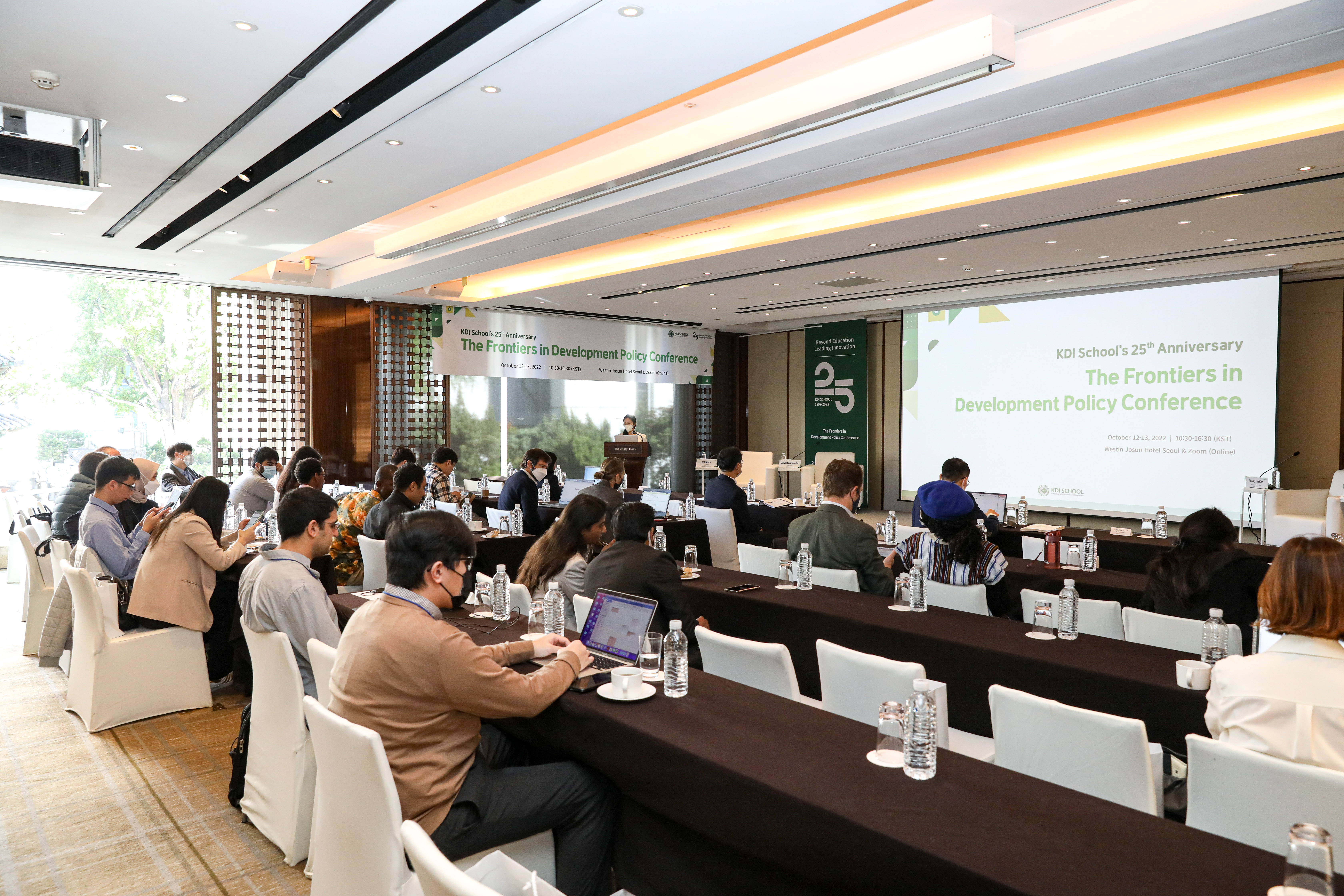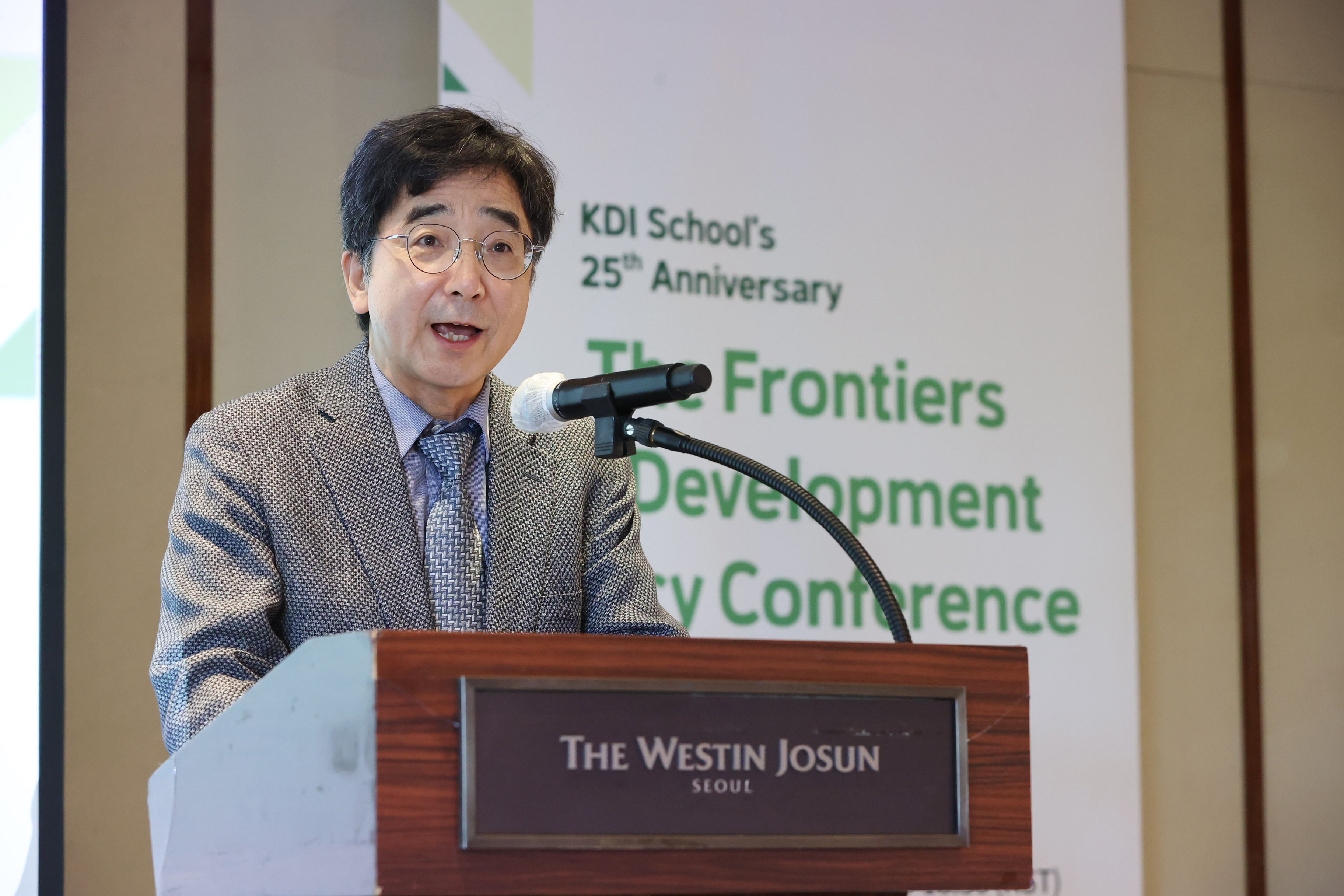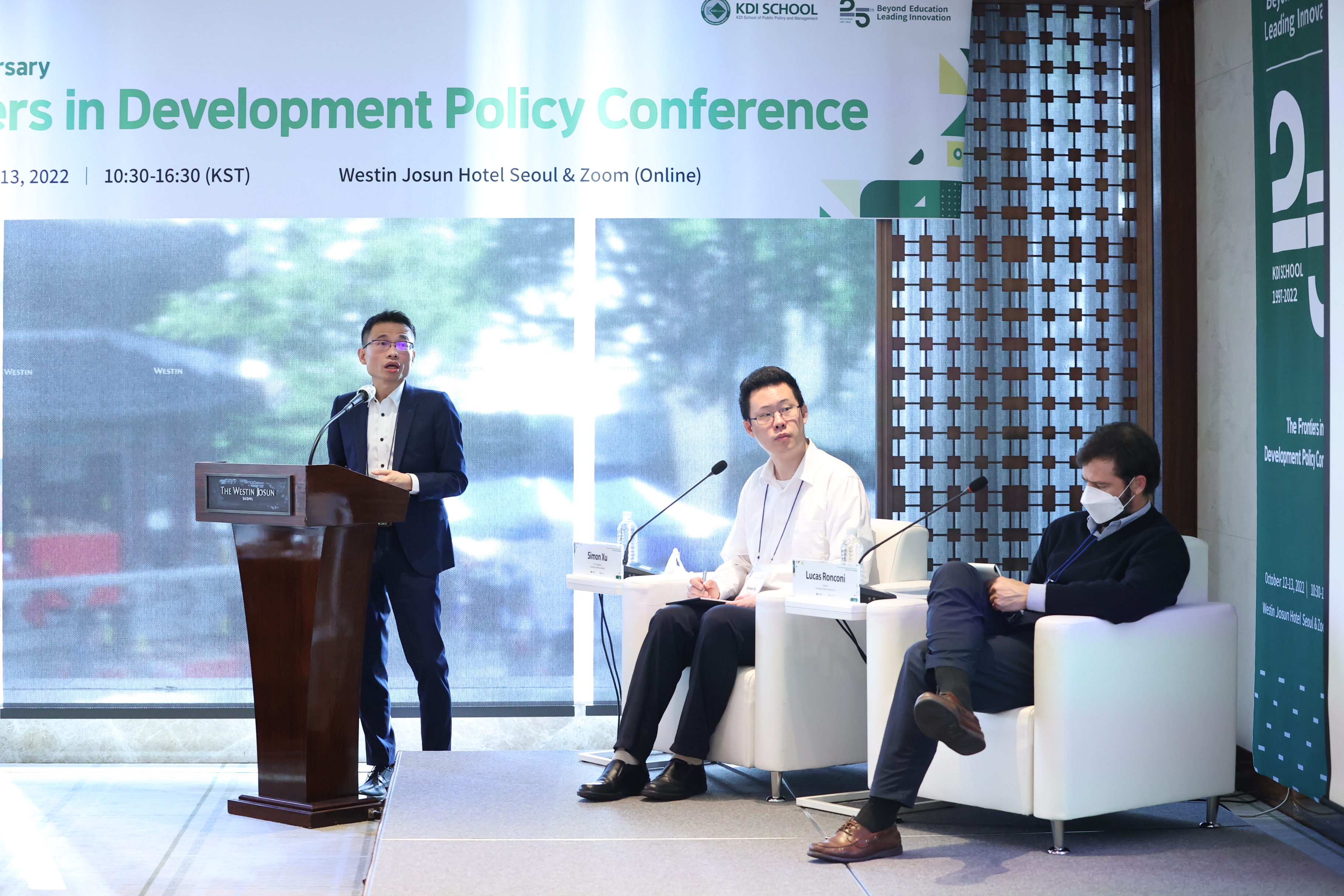
KDIS Holds Annual Conference: The Frontiers in Development Policy Conference
- Date 2022-11-16 14:22
- CategoryResearch and Education
- Hit1285
Last month, on October 12-13, 2022, the KDI School of Public Policy and Management (KDI School) held an academic conference entitled The Frontiers in Development Policy Conference for KDI School’s 25th Anniversary. For the third year, this conference has continued to play a significant role in hosting scholars from the world’s top international development institutions to present their research and allow them to grow their networks. As stated on the conference’s website, the FDP conferences aim to provide a venue to share empirical and policy research findings and explore the complex processes of the global economic market. Attendees and speakers are also able to debate policies and actions with a view to designing and executing high-quality development policies.

In the ‘new normal’ and amid various tumultuous global events, questions related to fostering development can arise. “I am particularly concerned about the overarching effect of global governance on development and efforts on the ground. COVID-19 painfully reminded us that many worthwhile micro interventions can be wiped out by the tidal waves of global events.… These days, I am hugely concerned about the US monetary policy: jacking up interest rates by the Fed in response to inflation,” said Dean You Jong-Il, Dean of KDI School. He continued saying that the US is doing this as a simple monetary policy response, but the implications for the rest of the world have been enormous. Just like how previous economic crises, such as The Debt Crisis, affected socioeconomic development of various people, Dean You noted how these crises yielded human costs that were “unspeakable”, and that “Something similar, I’m afraid, is coming.”

This year’s conference was, in fact, the first-time conference attendees and speakers could finally meet face-to-face and discuss policies to address pressing concerns; as Dean You remarked, he was happy that scholars could finally gather again after having to hold the first Frontiers in Development Policy Conference online back in 2020 due to the COVID-19 Pandemic.
With academic paper submissions screened with strict standards by professors in KDI School’s ten research labs, each session included various crucial topics in the field of development economics. On the first day, the session topics were 1) Corporates and Corporate Social Responsibility (CSR), and 2) Banking and Capital Markets. On the second day, the sessions were on 3) Environment and Climate Change, and 4) Disaster, Community, and Health Care.
The papers submitted allowed participants to discuss behaviors of various economic actors, such as firms and government agencies, and how they conduct development in their own way. For example, when it comes to CSR, one can ask the question why polluting firms engage in corporate philanthropy. According to the research of Mr. Simon Xu, Ph.D. Candidate from the University of California, Berkeley, polluting firms use corporate philanthropy as a salient form of reputation insurance for their company in the eyes of people in their community. The more pollution a firm creates , the more it donates to non-profits to hedge against negative perceptions of it.

As accelerating climate change becomes the norm, it becomes more imperative to research on how the warming world affects poverty on an international scale, and not just on a local scale, as most research has done in the past. This was the research presented by Mr. Hai-Anh Dang, Senior Economist from the World Bank, in another session. As his research shows, through collected evidence from different parts of the world, climate change can slowly, over many years, make the vulnerable even poorer.
The conference was an ideal setting for discussions on the issues facing global development. From the perspective of Dr. Kim Yeong Jae, Assistant Professor at KDI School and moderator of the Environment and Climate Change session, to him, many researchers are giving more attention to climate change and environmental issues, and the importance of these topics in the context of development economics. With the strong impact of climate change now, the papers presented in the conference “allowed participants the chance to think deeply about the link between poverty and climate change”.
One important reminder that Dean You imparted to the participants, to carry with them as they continue their work and research beyond the conference, was not to lose sight of the macro perspectives of dealing with causes of economic suffering: “I’m not saying these micro interventions are… unimportant, but we should not focus on these too much, and lose sight of the more fundamental, more important issues. If we keep going down that narrow path, we may ‘ignore the broader macroeconomic political and institutional drivers of impoverishment and underdevelopment.’”
